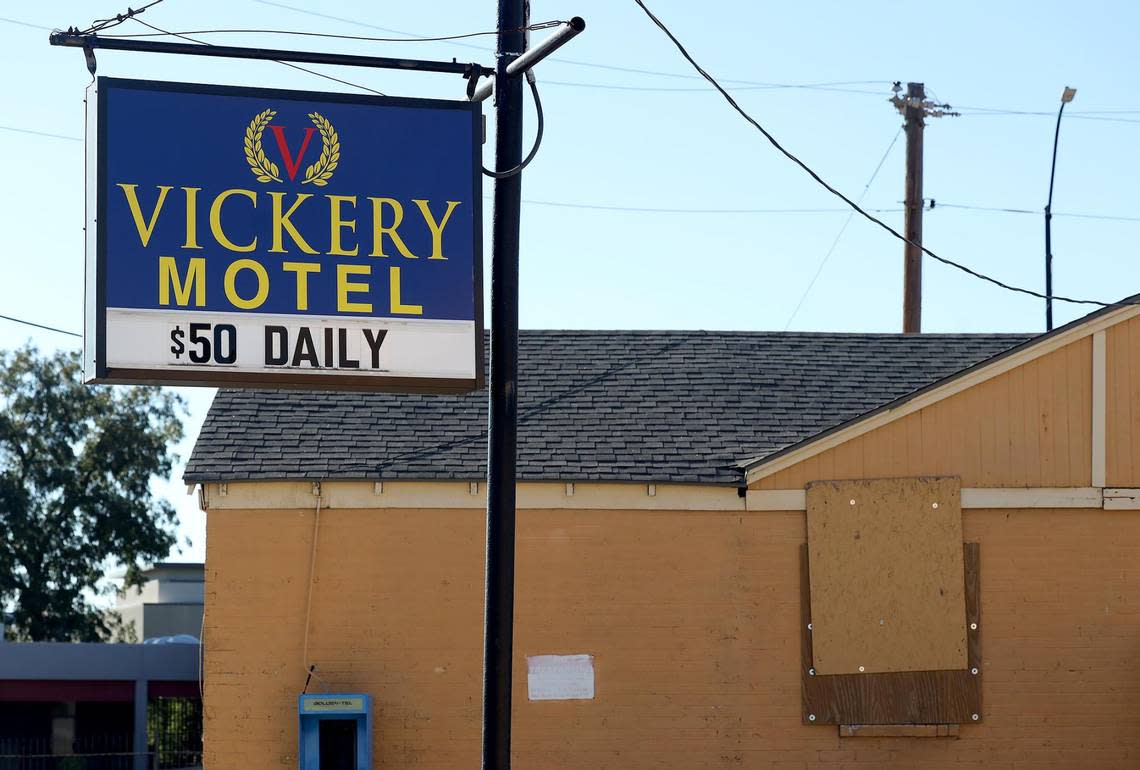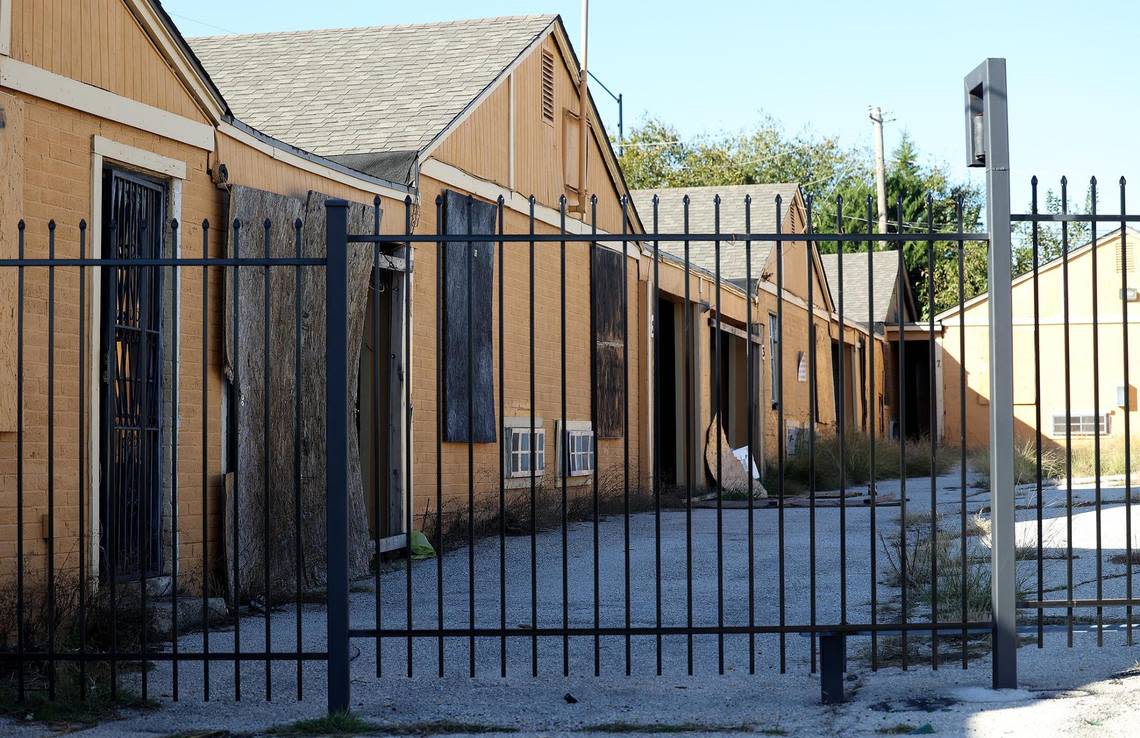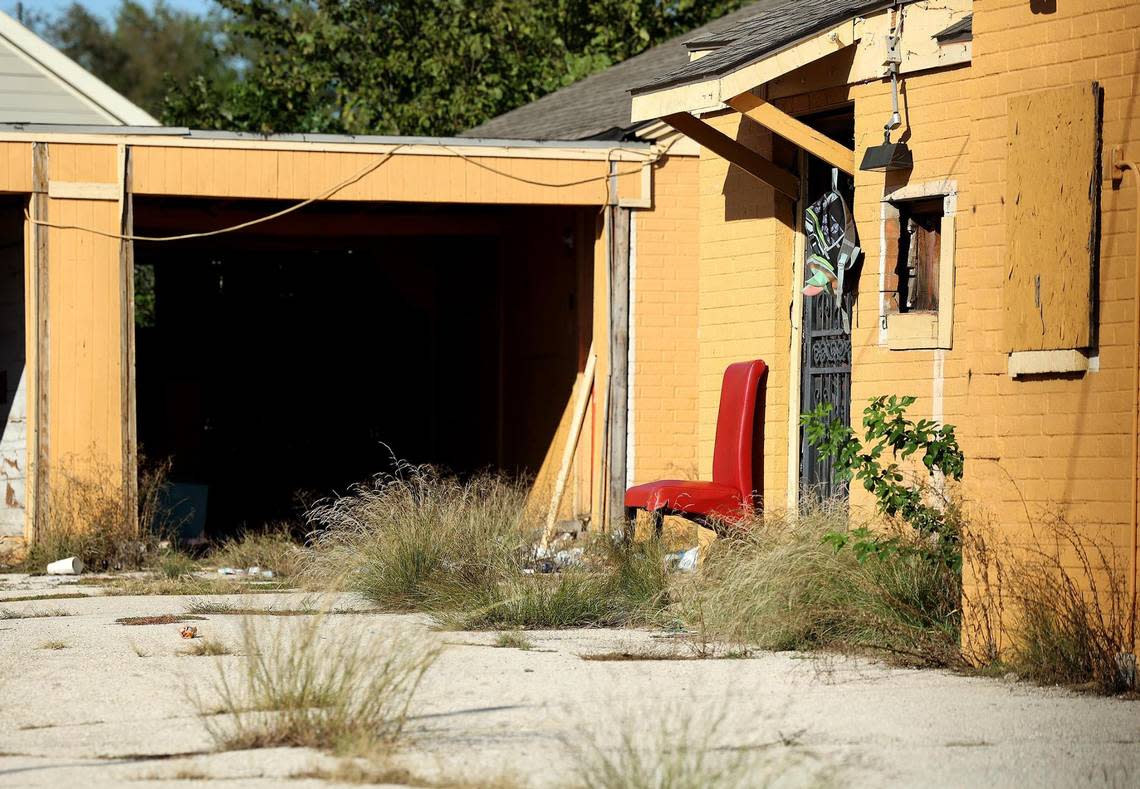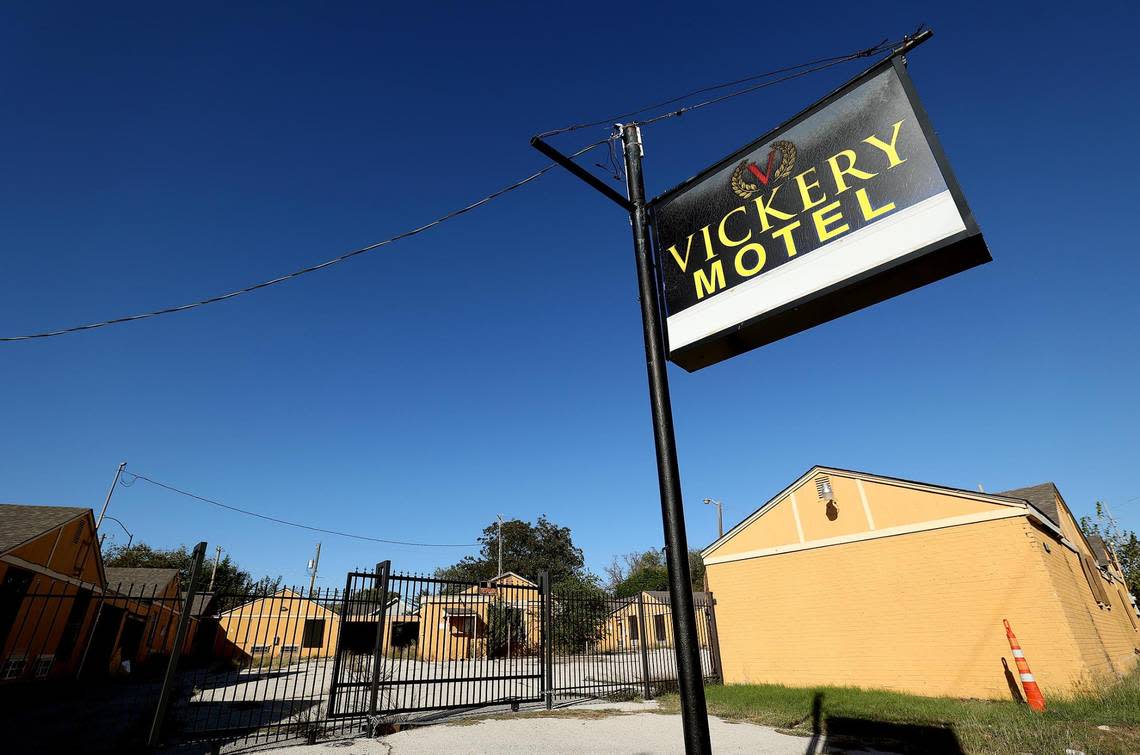This Fort Worth motel served Black guests during Jim Crow. Its future is now in question
Mike Jones, a contractor from West Texas, had just finished work on a house in Fort Worth about 20 years ago and needed a place to stay. The Vickery Motel on West Vickery Boulevard was an inexpensive option that suited his needs.
The hotel is on the edge of Como, an historically Black neighborhood southwest of downtown Fort Worth.
Jones, who now lives in Como, is an enthusiast of African American history and enjoyed learning about the neighborhood, Lake Como Park, the now closed Como High School and the area’s connection the Carswell Air Force Base on the west side of Fort Worth, now the Naval Air Station Joint Reserve Base.
Today, the Vickery Motel is closed and easily overlooked by residents. Also overlooked is its place in history as one of two remaining motels in the DFW area that were safe havens for African American travelers during segregation.

Jones would like to see the history of the Vickery Motel and Como preserved for future generations.
“They will see the greatness of these people that came before, and that is something to be proud of,” Jones told the Star-Telegram. “You can throw your shoulders back on it because you can see the part that you must play in the continuing of this legacy of Como.”
Historical designation sought by Como residents
A group of Como residents have worked to prove the historical significance of the Vickery Motel to help preserve it but a new report says the building doesn’t meet the criteria. Furthermore, the owner of the property has resisted the effort for preservation of the motel, which he says was begun without his input, even though he has been involved in the Como neighborhood.
The Vickery Motel, originally called Como Courts, was built in 1954, according to the Tarrant Appraisal District. It is on a triangular lot at the corner of Horne Street. The building is constructed as a motor lodge like those commonly seen in the 1940s and ‘50s, with minimal architectural detail, front facing gables, and a Tudor Revival architecture.

Its proximity to Como and the fact it was advertised in the Como Weekly newspaper hints that it was a motor lodge for African American people. According to an earlier project review by the Texas Historical Commission, it would make it one of two still intact motels in the Dallas-Fort Worth Metroplex that catered to African-Americans, the other being the Ranch Motel in Dallas. They served Black travelers during the Jim Crow era and before the passing of the Civil Rights Act of 1964, which made racial discrimination in public accommodations illegal in the United States.
The Ranch Motel was in the Green Book, a travel guide of businesses that welcomed African-Americans, though the Vickery Motel was not in the Green Book.
Segregation began to fade in the 1960s as what had been “whites only” motels began to allow diverse customers into their businesses, leaving many African American friendly motels to disappear.
Efforts to preserve the Vickery Motel date back more than 10 years, when there was discussion about having it designated on the National Register of Historic Places.
But the movement dwindled until a meeting in 2021, when the property owner, Arvind Nana, gave a presentation to neighborhoods residents about its relevance to the African American community.
Hotel’s place in Black history
James McGee, who volunteers in the community, helped alert Como residents about the hotel’s importance after he attended the presentation and did his own research.

The building is important to Como, Fort Worth and North Texas, McGee said.
“I think if more people knew about it, even more of the history of it, it probably could have been sold to somebody else for redevelopment,” McGee said. “It’s kind of like this quiet kept secret, and as long as it stays that way then that’s another historic building knocked down.”
On Oct. 9 during a Historic and Cultural Landmarks Commission meeting, McGee and others from the Como neighborhood and Fort Worth’s Historic Preservation Department presented a resolution to send a completed application, or begin extensive research about Vickery Motel, to the Historic and Cultural Landmarks Commission for a local designation. The Commission oversees historic, cultural, architectural and archaeological preservation in the city.
Nana objected to the proposal, which he said was done at the last minute and without his consent. He said the designation would hold up his potential redevelopment plans for the property. If the resolution passes and once the application is finished, the owner would get a notice limiting what changes can be made to the property.
Nana said he has been engaged with people in the Como community since 2021 for input about redevelopment of the property. The property had been for sale for two years without an offer, according to his broker, who was also in attendance at the October meeting.
Nana said the process to seek the local historical designation only began when people learned he had an offer from someone to buy the property with a plan to tear down the motel and use the property for commercial development.

“What bothers me and what I’m objecting to is this whole process was put on the agenda, notice was sent publicly, without ever physically contacting me, verbally contacting me by any members of the commission,” Nana said at the meeting. “I object to that process. That is not how I believe an owner of a property, who has especially been proactively engaged with the community to develop the property, should be treated.”
Nana did not respond to requests for comment.
The Historic and Cultural Landmarks Commission voted 5-1 to pass the resolution for a local landmark designation. Since there were board members not in attendance, a unanimous vote was required for the proposal to proceed and the resolution failed.
Report shows damage that could prevent preservation
The community and Fort Worth Historic Preservation’s next step is to ask the city council to approve a resolution to start a new application to research the property, and, if approved, it will be put back before the Historic and Cultural Landmarks Commission.
Since learning about Nana’s disapproval, the Lake Como Neighborhood Advisory Council, has reached out to him to reestablish communication and confirm plans for the motel.
However, Fort Worth Historic Preservation examined the property recently and found the building did not meet all the criteria for a historical designation because of its condition, City Councilman Jared Williams said. There was termite damage, wood rot, and some material used in the current construction that does not match the original, he said. Original material that remains would have to be replaced due to its condition.
With that news, the community hopes to still pursue a historical marker for the site, Williams said.
There were talks within the community, if they received funding from the historical designation, about the possibility of a portion of the property being used as a bed and breakfast and a two story structure on the property being used for commercial businesses.
Elouise Burrell is a Como resident who pointed to the neighborhood’s pride and said the designation is not just about the building but to show people the progress that was made for African American people in Como.
“We all want to preserve the history of those who were there before us, who gave us the foundation upon which we built our lives to become the people we are today,” Burrell said. “And we want to make sure that information is passed onto future generations and preserved in history.”